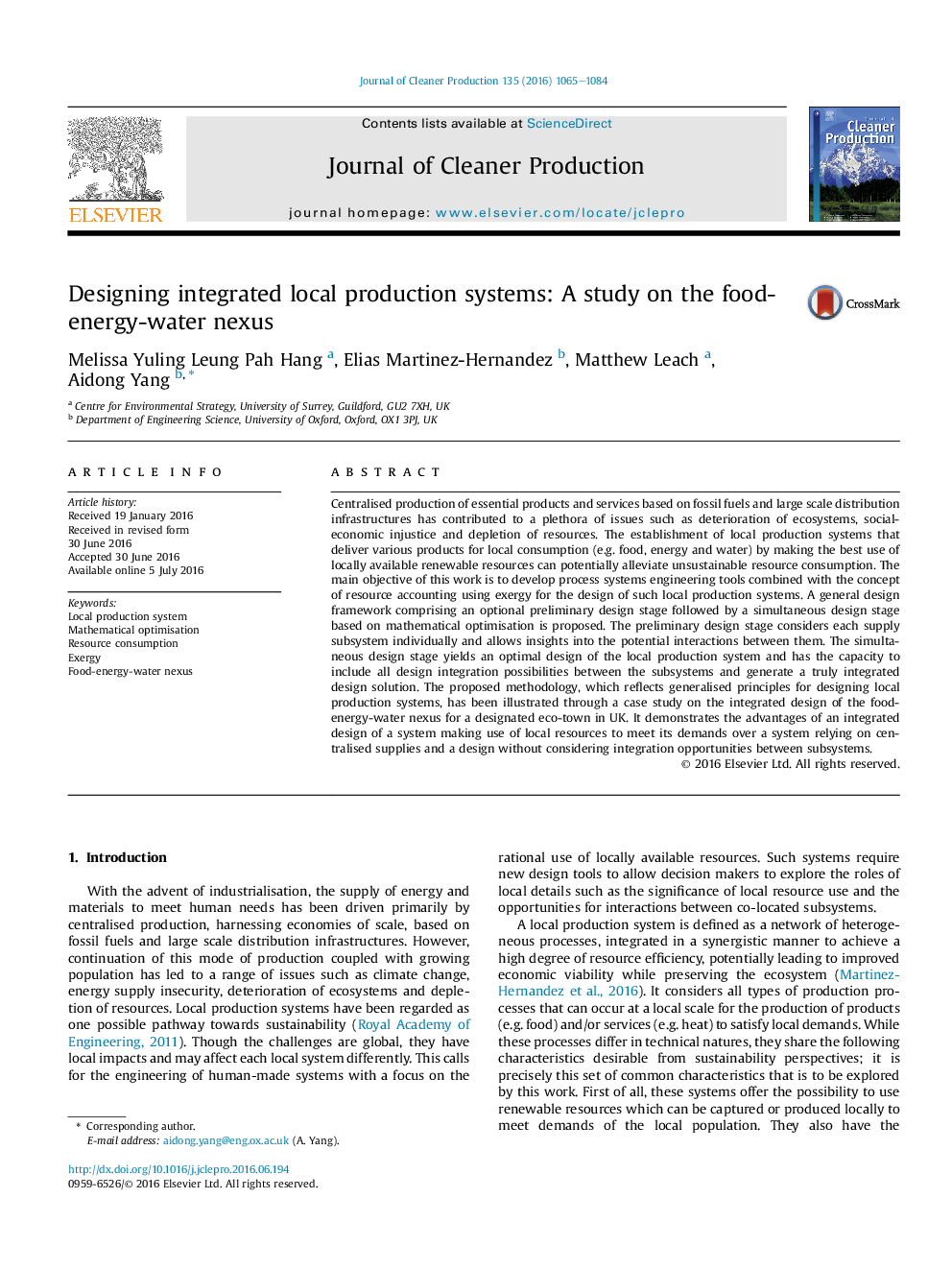| Article ID | Journal | Published Year | Pages | File Type |
|---|---|---|---|---|
| 8101386 | Journal of Cleaner Production | 2016 | 20 Pages |
Abstract
Centralised production of essential products and services based on fossil fuels and large scale distribution infrastructures has contributed to a plethora of issues such as deterioration of ecosystems, social-economic injustice and depletion of resources. The establishment of local production systems that deliver various products for local consumption (e.g. food, energy and water) by making the best use of locally available renewable resources can potentially alleviate unsustainable resource consumption. The main objective of this work is to develop process systems engineering tools combined with the concept of resource accounting using exergy for the design of such local production systems. A general design framework comprising an optional preliminary design stage followed by a simultaneous design stage based on mathematical optimisation is proposed. The preliminary design stage considers each supply subsystem individually and allows insights into the potential interactions between them. The simultaneous design stage yields an optimal design of the local production system and has the capacity to include all design integration possibilities between the subsystems and generate a truly integrated design solution. The proposed methodology, which reflects generalised principles for designing local production systems, has been illustrated through a case study on the integrated design of the food-energy-water nexus for a designated eco-town in UK. It demonstrates the advantages of an integrated design of a system making use of local resources to meet its demands over a system relying on centralised supplies and a design without considering integration opportunities between subsystems.
Related Topics
Physical Sciences and Engineering
Energy
Renewable Energy, Sustainability and the Environment
Authors
Melissa Yuling Leung Pah Hang, Elias Martinez-Hernandez, Matthew Leach, Aidong Yang,
